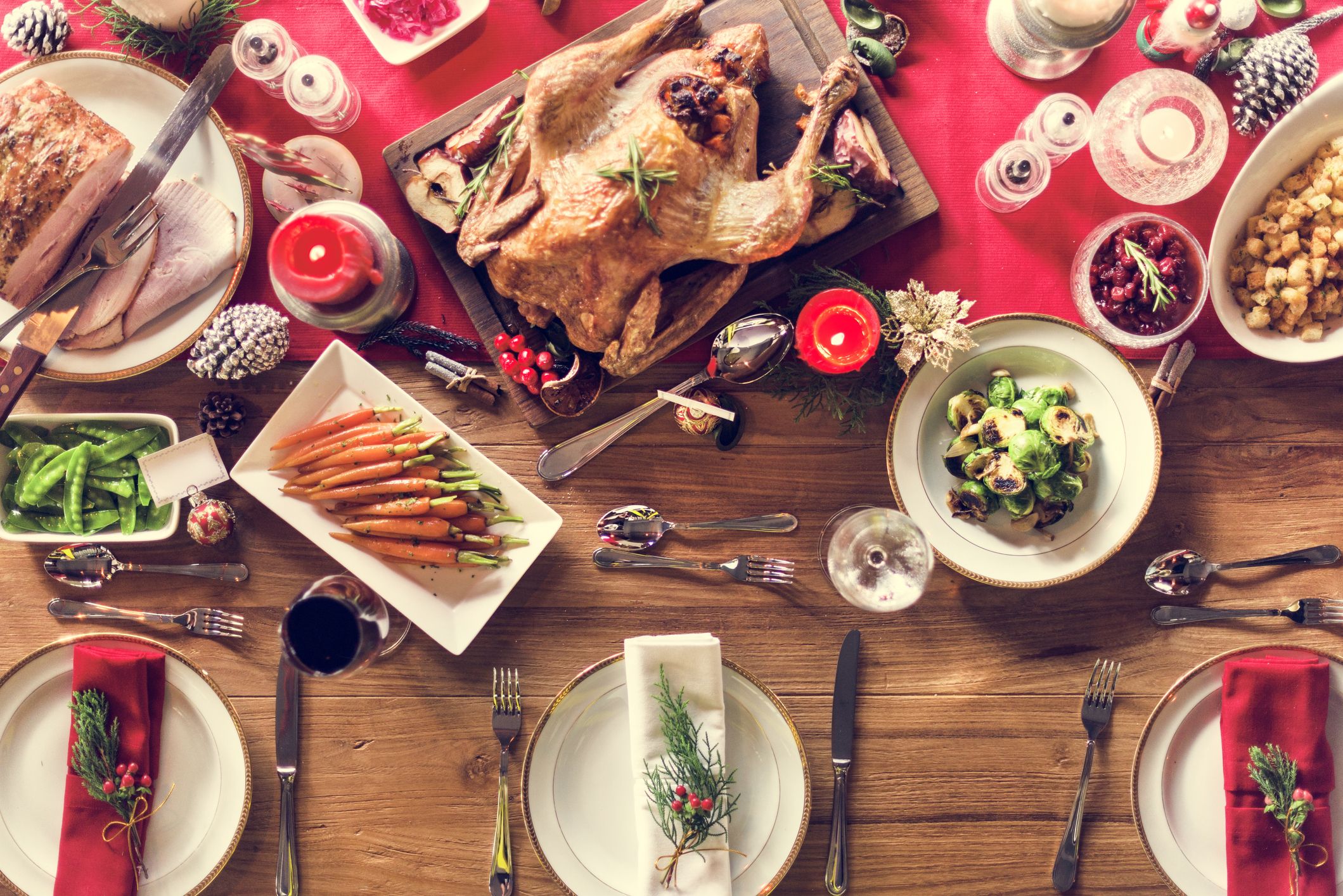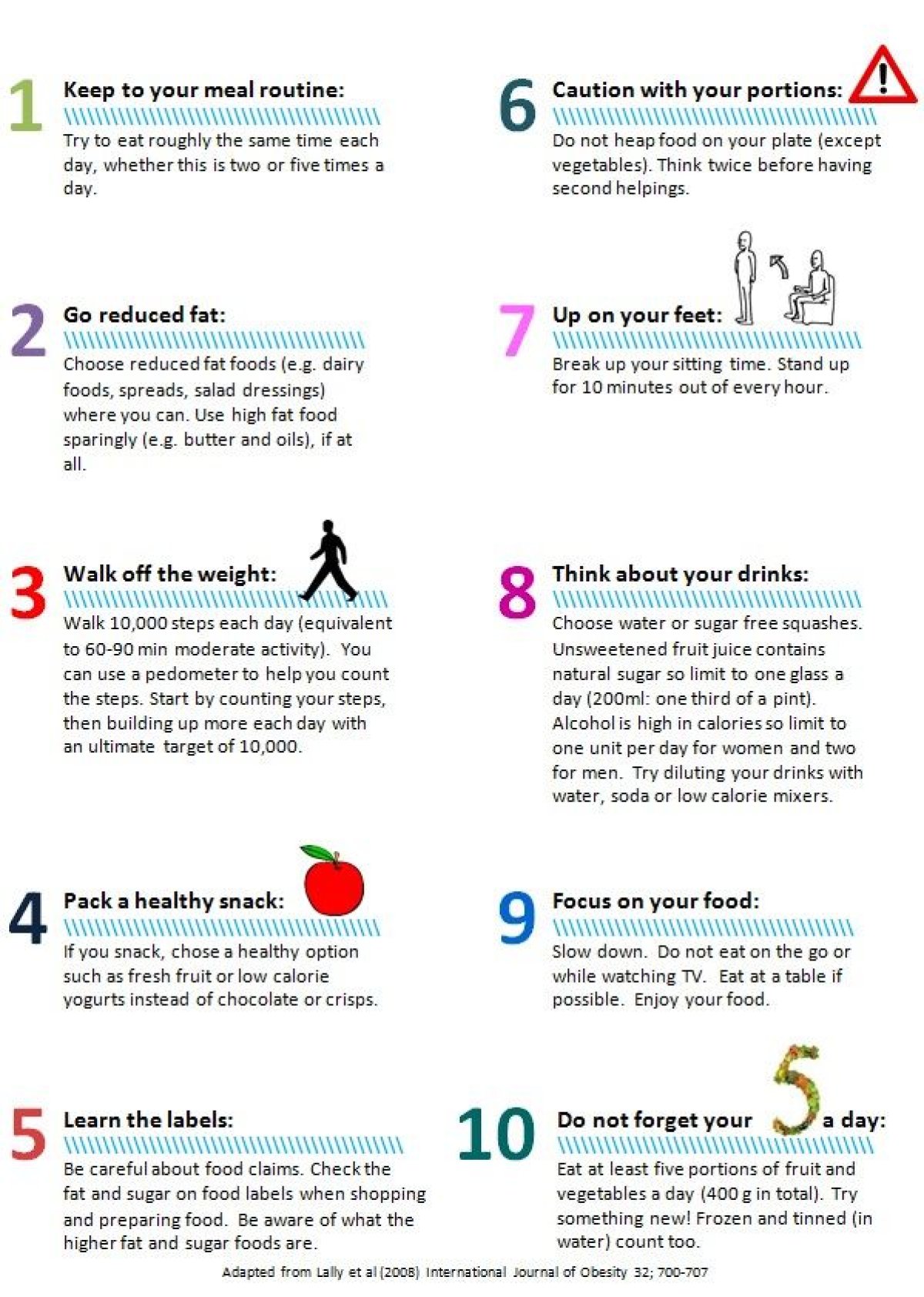
Maybe it was that slab of gravy-laden turkey on Thanksgiving that started it all, or perhaps the handful of spiced festive cookies a colleague passed around at work, but as January 1 rolls around it's as clear as day: you've put on holiday weight (again).
It's this problem of so-called "winter weight gain" that scientists at the Universities of Birmingham and Loughborough, in the U.K., set their sights on solving in a study. Released just in time for Christmas, the study published in The BMJ details a list of 10 rules that reduce the impact of festive indulgences on our bodies. Weighing oneself regularly is also important, according to their paper.
Read more: Belly Fat Linked to Vitamin D Deficiency in New Study
Researchers recruited 242 participants (78% of which were women) for a study running between 2016 and 2017. Their weight was documented in November and December of those years, and again in January and February 2017 and 2018.
At random, participants were assigned one of two regimes. In one, members were provided with 10 tips designed to help maintain their weight, as well information on the approximate amount of exercise it would take to burn off popular Christmas food and drink. Mince pies, a popular winter-time snack in the U.K. consisting of pastry filled with fruits like raisins marinated in spirits and spices, took 20 minutes to run off. They were tasked with weighing themselves every day, or at least twice a week, and noted the figure down.
The second group was only given general information about what constitutes a healthy lifestyle.
The team found most participants who were just provided information gained weight during the festive season, while those prescribed the 10 tips and weighing instructions didn't. In fact, they weighed 0.49kg less on average than those in the other group.
That's likely because the first group was more inclined to reflect on their food and drink choices, and curb their intake if they noticed their weight rising.
Frances Mason, first author of the study at the University of Birmingham's Institute of Applied Health Research, told Newsweek that preventing weight gain in the winter is particularly important, because people tend to not lose it again.
"We found a simple intervention to prevent this from happening," said Mason. The team wasn't sure how well the participants would take to their tips, but "were really surprised at how motivated participants were, with 85% weighing themselves at least twice per week over the course of the study."
The study was limited, however, because the volunteers were monitored over one Christmas period and so the longer-term effects were unclear, she said.
"Readers should be mindful that many people gain weight over Christmas but that it is not inevitable," Mason explained. "It is possible to prevent weight gain by self-weighing regularly and being aware of the number of calories contained in popular Christmas food and drinks and how many minutes of physical activity it takes to burn off these foods.
"But it is also important to highlight that it is possible to demonstrate some restraint of eating and drinking, whilst still enjoying the festive season."
Azmina Govindji, a dietitian and spokesperson for the British Dietetic Association who did not work on the study, told Newsweek: "This was a well-conducted, double-blinded randomized controlled trial. It appears to be the first study to look at weight gain over the holiday period."
However, Aisling Pigott, a second dietitian and spokesperson for British Dietetic Association who was not involved in the research, told Newsweek the study was small and "we know that public health messages don't work for everyone, especially if we have a complex relationship with food and body."
Asked whether focusing so closely on food could trigger an eating disorder, she said it can "definitely make it difficult for those with an eating disorder, which is why the focus should always be on healthy relationships with food."
Govindji continued: "Losing the weight after the festive season can be really difficult, so prevention of excess weight gain in the first place is a more powerful way to go."
She recommended keeping a food diary to log portion sizes.
"Find a way to create a plan that actively engages your conscious thinking," she suggested. "This could be recording your food through an app, writing down your weight and acting on any weight gain, planning your activity for the week by booking classes, or having short-term goals that you can tick off once completed."

Uncommon Knowledge
Newsweek is committed to challenging conventional wisdom and finding connections in the search for common ground.
Newsweek is committed to challenging conventional wisdom and finding connections in the search for common ground.
About the writer
Kashmira Gander is Deputy Science Editor at Newsweek. Her interests include health, gender, LGBTQIA+ issues, human rights, subcultures, music, and lifestyle. Her ... Read more
To read how Newsweek uses AI as a newsroom tool, Click here.








